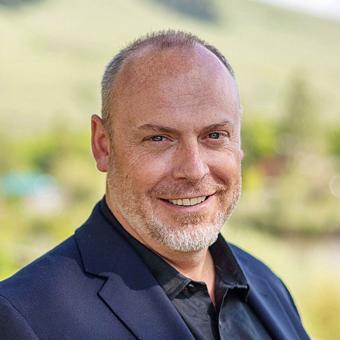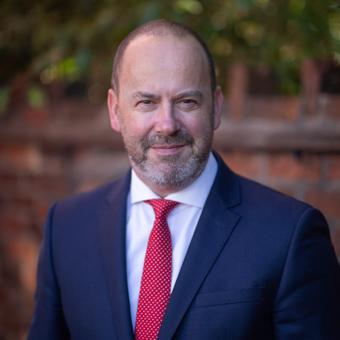BCL’s In-House Managing Director Mark Levine speaks to James Bridge, Legal Counsel at Booking.com, about qualifying in-house via a graduate apprenticeship at the travel giant.
Mark Levine: When did you decide you wanted to be a lawyer?
James Bridge: Initially unsure of what I wanted to study at college, at an open evening I recognised someone I knew in the law booth. I hadn’t considered law before but that conversation led me to eventually choose it as a subject at college.
By the time it came to university choices, it was between law and music technology. I picked law because I enjoyed it during college. But I’m not sure I made the decision to “become a lawyer” until much later!
ML: Was qualifying in-house, via SQE your first choice?
JB: Not at all. Firstly, I graduated university in 2018 so the SQE was not yet introduced. Initially, I wanted to get into academia. I really enjoyed studying law and writing about it so, instead of pursuing the LPC/Training Contract route, I decided to study an LLM in Public International Law at the University of Manchester.
Toward the end of my masters I decided I wanted to get experience in the application of the law at a global company before pursuing a PhD. I was very lucky to land a paralegal role at Booking.com, where I have been since.
ML: How did you learn about the SQE route?
JB: After around two years of being at Booking.com I had come to the conclusion that I wanted to stay at the company instead of returning to education. I believe travel is a force for good and supporting the company in making it easier for everyone to experience the world really motivated me.
I found out that the definition of 'Qualifying Work Experience' matched my work experience and realised it was a viable option.
Additionally, the career opportunities, as well as incredible managers and mentors, were helping me develop as a legal professional. However, as I hadn’t completed the LPC and my employer didn’t offer training contracts, it was likely that I’d have had to leave the company to qualify.
When the SQE was introduced I read about it in articles on social media. I found out that the definition of “Qualifying Work Experience” matched my work experience and realised it was a viable option for qualifying and progressing my career whilst staying at the company.
ML: How did you get the opportunity to start the SQE process?
JB: In my spare time I researched what options were available from different providers. The options varied from just paying for the exams to prep-courses spanning different lengths of time.
I found a Graduate Entry Solicitor Apprenticeship offered by the University of Law which very much appealed to me. It was a longer course than most (over two years) but it supplemented my work experience and, instead of being just preparation to pass exams, it taught me skills I still use in my day-to-day.
I proposed this to my manager and she was very supportive of the idea. Together we presented to the General Counsel who also was supportive. After sorting out the admin with the help from our great HR team, I started the course soon after.
ML: Can you talk us about your training experience?
JB: Training through an apprenticeship was great. Once a week I had a “study day” which I dedicated to learning the topics and legal soft skills that are needed to pass the exams. The learnings from my apprenticeship could be applied to my day-to-day, for example how to negotiate, advocate certain points of view and draft emails, memos and contracts.
For the remaining four days, work was relatively similar to before starting the apprenticeship, because my mentors and managers continued to provide me with varying types of legal work and took the time to provide feedback where I could improve. I felt that my apprenticeship improved my work and my work improved my apprenticeship.
ML: How does it differ from training in private practice?
JB: Comparing my in-house training experience to what my friends in private practice have described, I believe there are three main differences:
Firstly, the variety of legal topics differs significantly. Private practice trainees typically rotate through four distinct seats, focusing on specific legal disciplines and deepening their expertise within those areas. In contrast, junior in-house lawyers generally handle a broader range of work, requiring a more general understanding across various legal issues, leading to a more dynamic daily experience. Personally, the exposure to a wider variety of topics in-house was more beneficial for my development as a generalist lawyer.
In-house counsel tend to be involved from the initial stages of a project through to its completion, offering more hands-on involvement.
Secondly, the level of end-to-end support varies. Private practice lawyers are often engaged to address specific issues. Conversely, in-house counsel tend to be involved from the initial stages of a project through to its completion, offering more hands-on involvement rather than more advisory roles. Additionally, private practice trainees typically have less direct client contact compared to in-house lawyers, whose "client" is the business itself, requiring direct support to business teams.
Thirdly, cohort size differs. Private practice is a more established route for qualification, resulting in larger cohorts of trainees who can support each other through the training and exam process. In-house legal teams tend to be smaller, and a trainee might be the only one undergoing the qualification process, as I was. However, through my apprenticeship with the University of Law, campus study days provided opportunities to connect with fellow students for study and exam support.
ML: The exams are notoriously hard. How did you get through it?
JB: As mentioned previously, I benefitted from the longer period of study. Although it took me a while to get my practising certificate compared to some other routes, doing it this way ensured I would pass first time and not have to resit the exams. The University of Law provides SQE Manuals (which can be purchased by non-students) that I thought were very good and I assume they will continue to improve as more cohorts progress through the SQE.
For SQE2, I found in-person practice of the soft skills through prep courses was the most beneficial.
In addition to this, in the month before SQE1 and SQE2, I made studying for it my whole life. Whenever I had a spare minute I would create study plans, memorise those topics and key laws and principles, and do as many practice tests as possible (even if I was repeating the same questions).
For SQE1, I found that practice tests were the most beneficial way to prepare. For SQE2, I found that the practice multiple choice tests were a good way to keep legal principles memorised, but in-person practice of the soft skills through prep courses was the most beneficial.
ML: What tips do you have for aspiring lawyers who might want to follow in your footsteps?
JB: I started with dreams of being a musician, then explored law, considered academia, and finally landed on becoming a solicitor. It's okay to change your mind on your career trajectory when opportunity presents itself.
What I believe aspiring lawyers should keep constant is surrounding themselves with mentors (including managers, colleagues, lecturers, etc.) who genuinely care and invest time into their development – they will help spot opportunities and support learning and growth. Mentors will open doors for you as long as you also commit to searching for opportunities yourself, learning new things and putting your hand up when opportunities arise, even if that means occasionally jumping in the deep end.
It's okay to change your mind on your career trajectory when opportunity presents itself.
Also, be mindful to avoid being pigeonholed too early in your career. I think it’s very important to try new things by being as generalist as possible for as long as possible – and working in-house early on in your career will typically allow for that.
Fortunately, the new route to qualify is more open to non-traditional “Qualifying Work Experience”, so having a wide breadth of experience as opposed to working towards becoming a subject matter expert now contributes to qualification.
ML: Is there anything else you think the legal profession needs to consider to “open the doors” even more?
JB: I believe with the introduction of the SQE, the doors are open to those who can afford the exams and the independent training alongside it. Sadly, it is still quite a costly endeavour, especially if you don’t have a law firm or large company to pay for the exams or training on your behalf.
The cost also may deter small/medium enterprises from training their own junior in-house legal through to qualification given the upfront costs that are associated with doing so. Therefore, these SME organisations may opt to not hire or train junior legal staff. If the costs can be lowered through expansion of legal apprenticeship schemes for smaller enterprises there would likely be a bigger impact on opening the doors even more.
ML: What are your aspirations for the next few years?
JB: Over the next few years I want to continue growing in my current organisation and looking for opportunities within. There is still much to be learnt from my more senior colleagues that will no doubt benefit me in the long run. Beyond that, maybe I will even go back to university to get that PhD! In any case, I will be keeping an open mind on where my career journey takes me.
Visit
Connect with James Bridge via LinkedIn









